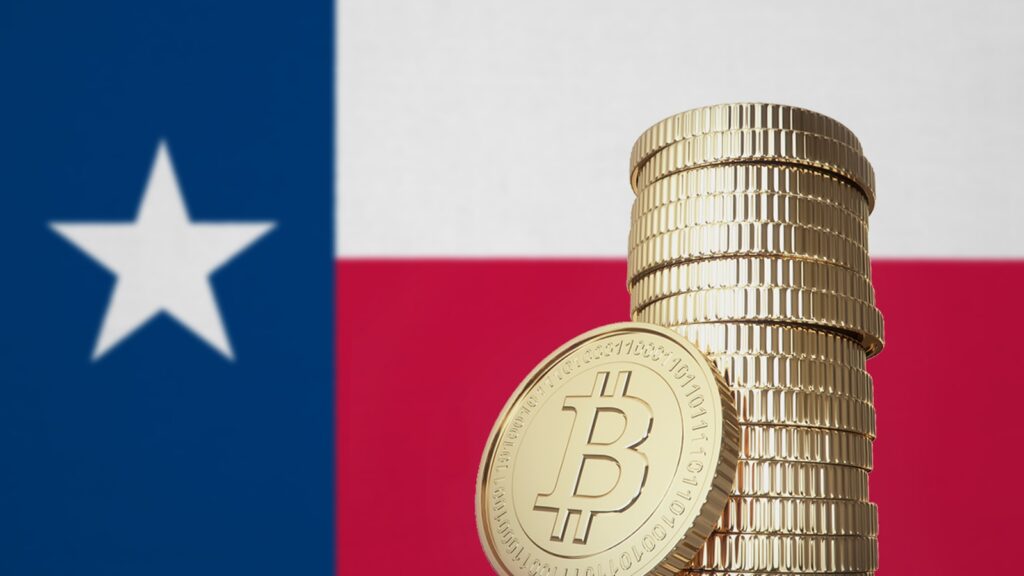iStockphoto / btgbtg
A new report on the state of crypto in Texas suggests Republican legislators in the state are ‘souring on’ bitcoin after it was revealed that crypto miners in Texas are making tens of millions of dollars on any given month by not mining anything at all and instead carefully working the system to sell energy back to the state.
The report from the Economist titled ‘Why Texas Republicans are souring on crypto‘ was published earlier this week and most of it includes standard stuff that anyone paying attention to the news already knows. But ~50% into the article there is this very interesting tidbit about how crypto miners in Texas make more money by not mining anything at all.
After Winter Storm Uri in mid-February 2021 that crippled the Lone Star State’s infamous power grid and caused blackouts for 9.9 million people across the US and Mexico with 4.5 million in Texas losing power, Texas governor Greg Abbott sought to use “crypto as a tool to make the grid more robust” believing that it would “incentivize power stations to produce more electricity and keep the cost of energy low.”
Crypto Mining In Texas… Nice Work If You Can Get It
Around that time, the crypto mining company Riot and others signed contracts with energy suppliers in Texas at fixed rates for up to a decade. Three years into those deals it has proven to be incredibly lucrative for Riot and others, according to the findings from the Economist.
During peak usage times, the hottest and coldest days, crypto miners in Texas are able to shut down their bitcoin mining operations and cleverly utilize “two emergency schemes” that allow them to sell energy back to the state and make a killing:
“On the hottest and coldest days, when demand for electricity peaks and the price soars, the bitcoin miners either sell power back to providers at a profit or stop mining for a fee, paid by ERCOT. Doing so has become more lucrative than mining itself. In August 2023 Riot collected $32m from curtailing mining and just $8.6m from selling bitcoin.”
Let that sink in for a moment. In one Summer month, they were able to earn $32 million from not mining anything at all and instead sell the energy they would have been using to mine bitcoin back to the state for tens of millions of dollars so that energy can be utilized in other ways by the Texas energy grid.
The Tech Transparency Project published a damning study back in 2022 titled ‘Cryptocurrency Miners’ Sweetheart Deal with Texas Threatens an Already Fragile Grid’ where they claimed crypto miners in Texas are “holding the state hostage” with these long-term contracts.
Will the State of Texas take action?
The entrepreneur in me sees these companies taking advantage of loopholes the state created and thinks ‘wow, why didn’t I know about this 5 years ago?’ Because it seems like an easy opportunity to make millions.
Michael Thomas of the Distilled newsletter astutely points out that while bitcoin miners in Texas argue they should be able to participate because they are ‘big electricity’ and by shutting down they can drastically reduce the load on the power grid, the program does the opposite in this instance.
On X, Thomas writes “these programs were designed to incentivize energy savings. Attracting bitcoin miners with a new source of revenue does the opposite. It creates better economics for an activity that has little value beyond financial speculation. It also makes the economics worse for participants that are sacrificing a productive activity (e.g. making steel to build homes).”
With Texas seeing record heat waves over the past two Summers it would stand to reason that the state would reevaluate these programs and contracts at some point, right? Maybe not… Texas is notorious for being historically averse to meddling in big business.
According to the Economist‘s report, there was a bill last year passed by the Texas Senate that would bar crypto miners from participating in the “demand-response” program of selling energy back to the state. That bill, however, never made it through the House. It’s believed similar legislation will be put forth in the coming months but again, Texas doesn’t make it a habit of restricting big business.

